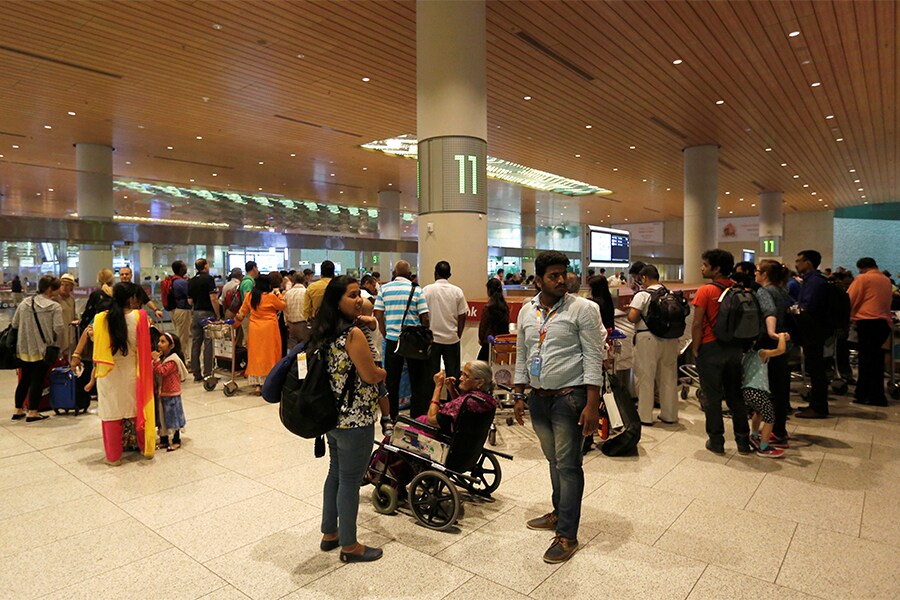Airfares aren't cheaper, but airports to get bigger
Excise duty on aviation turbine fuel unchanged; Jaitley silent on service tax applicable on Viability Gap Funding


 Image: Danish Siddiqui / Reuters If you are a frequent flyer, then Budget 2018 has nothing to offer in terms of cheaper airfares. Given that the average fuel price for airlines has increased by 13 percent over the last 12 months, due to the rise in global crude oil prices, a cut in the excise duty on ATF (Aviation Turbine Fuel) would have meant cheaper airfares. At present the excise duty on ATF is 14 percent, which incidentally was 8 percent before Budget 2016 was presented.
Image: Danish Siddiqui / Reuters If you are a frequent flyer, then Budget 2018 has nothing to offer in terms of cheaper airfares. Given that the average fuel price for airlines has increased by 13 percent over the last 12 months, due to the rise in global crude oil prices, a cut in the excise duty on ATF (Aviation Turbine Fuel) would have meant cheaper airfares. At present the excise duty on ATF is 14 percent, which incidentally was 8 percent before Budget 2016 was presented.
From the government’s standpoint though nothing needed to be done to spur the growth of air travel in the country. Despite the broader economic headwinds, domestic air passenger traffic has been growing at 18 percent per annum over the last three years. Given this pace of growth, the Modi-led government instead has decided to focus on creating bigger airports across the country.
On Thursday, Finance Minister Arun Jaitley announced a new initiative called NABH Nirman for the civil aviation sector. Through this initiative, Jaitley said, “We propose to expand our airport capacity [by] more than five times to handle a billion trips a year.” This capacity addition would be across the 124 airports that are operated by the government entity, Airports Authority of India (AAI).
“It’s fantastic to see that the government is shifting from short-term planning to [having] a long-term vision. The focus should now shift to the execution of this challenging, yet achievable vision,” says Amber Dubey, partner and India head of aerospace and defence at global consultancy firm KPMG. That said, Dubey adds, “The [aviation] industry wants jet fuel to be included under GST.”
While Jaitley didn’t mention what the government’s outlay towards NABH Nirman would be, he said, “[The] balance sheet of AAI shall be leveraged to raise more resources for funding this expansion.” Jaitley, in his last budget, had proposed to amend the Airports Authority of India Act in order to “enable effective monetisation of land assets”. “The resources, so raised, will be utilised for airport upgradation,” he had said.
NABH Nirman is the second government-led initiative for India’s civil aviation market, after the launch of the regional connectivity scheme Udan, in April last year. Through Udan, the government plans to connect 56 unserved airports and 31 unserved helipads across India. “Operations have already started at 16 airports,” the minister informed the lower house of Parliament.
He, however, gave no clarity on whether service tax would be levied on the Viability Gap Funding (VGF) that airlines are entitled to under Udan. Last year, he exempted airlines from paying a 14 percent service tax on VGF for a period of one year from the date of commencement of their operations. Airlines like SpiceJet began operations under Udan in the April-June quarter of last fiscal.
First Published: Feb 01, 2018, 15:44
Subscribe Now